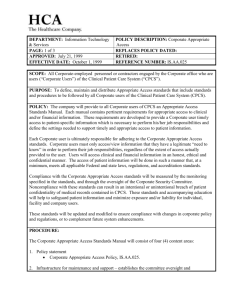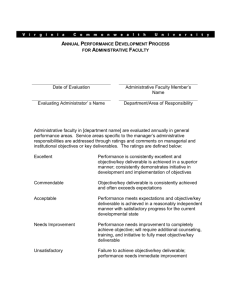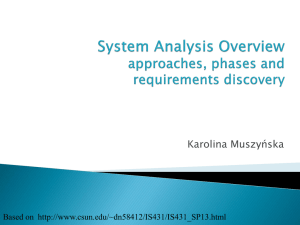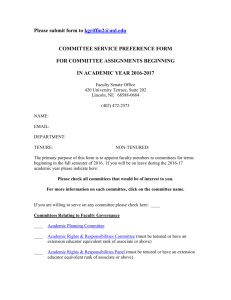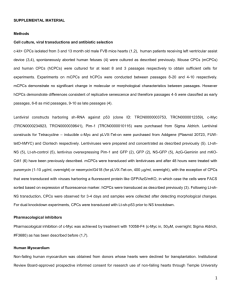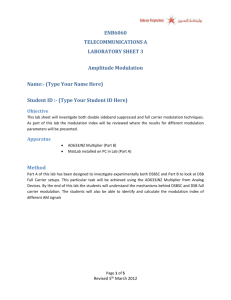Detailed work plan, training, evaluation and progress reports
advertisement
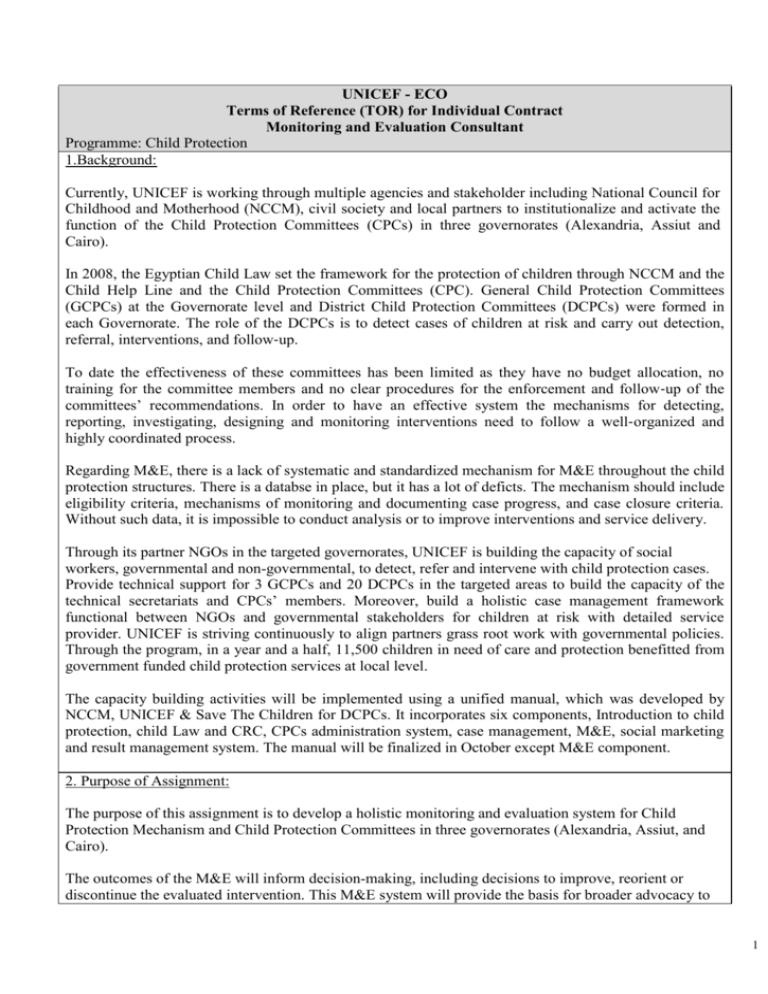
UNICEF - ECO Terms of Reference (TOR) for Individual Contract Monitoring and Evaluation Consultant Programme: Child Protection 1.Background: Currently, UNICEF is working through multiple agencies and stakeholder including National Council for Childhood and Motherhood (NCCM), civil society and local partners to institutionalize and activate the function of the Child Protection Committees (CPCs) in three governorates (Alexandria, Assiut and Cairo). In 2008, the Egyptian Child Law set the framework for the protection of children through NCCM and the Child Help Line and the Child Protection Committees (CPC). General Child Protection Committees (GCPCs) at the Governorate level and District Child Protection Committees (DCPCs) were formed in each Governorate. The role of the DCPCs is to detect cases of children at risk and carry out detection, referral, interventions, and follow‐up. To date the effectiveness of these committees has been limited as they have no budget allocation, no training for the committee members and no clear procedures for the enforcement and follow‐up of the committees’ recommendations. In order to have an effective system the mechanisms for detecting, reporting, investigating, designing and monitoring interventions need to follow a well‐organized and highly coordinated process. Regarding M&E, there is a lack of systematic and standardized mechanism for M&E throughout the child protection structures. There is a databse in place, but it has a lot of deficts. The mechanism should include eligibility criteria, mechanisms of monitoring and documenting case progress, and case closure criteria. Without such data, it is impossible to conduct analysis or to improve interventions and service delivery. Through its partner NGOs in the targeted governorates, UNICEF is building the capacity of social workers, governmental and non-governmental, to detect, refer and intervene with child protection cases. Provide technical support for 3 GCPCs and 20 DCPCs in the targeted areas to build the capacity of the technical secretariats and CPCs’ members. Moreover, build a holistic case management framework functional between NGOs and governmental stakeholders for children at risk with detailed service provider. UNICEF is striving continuously to align partners grass root work with governmental policies. Through the program, in a year and a half, 11,500 children in need of care and protection benefitted from government funded child protection services at local level. The capacity building activities will be implemented using a unified manual, which was developed by NCCM, UNICEF & Save The Children for DCPCs. It incorporates six components, Introduction to child protection, child Law and CRC, CPCs administration system, case management, M&E, social marketing and result management system. The manual will be finalized in October except M&E component. 2. Purpose of Assignment: The purpose of this assignment is to develop a holistic monitoring and evaluation system for Child Protection Mechanism and Child Protection Committees in three governorates (Alexandria, Assiut, and Cairo). The outcomes of the M&E will inform decision-making, including decisions to improve, reorient or discontinue the evaluated intervention. This M&E system will provide the basis for broader advocacy to 1 strengthen national child protection policy, through providing impartial and credible evidence. The M&E system will be covering two main components: 1. CPCs This component will be monitoring the administrative, case management and prevention systems. The monitoring of the administrative system will follow up on the coordination between the CPPs through periodic reports submitted from DCPCs to GCPCs on the committees’ progress. Secondly, monitoring case management through detected cases and the efficiency of the interventional plan that was put in place through compilation of specific data during detection, case study and intervention phases, update the database and follow up on the cases during and after intervention. Monitoring the implementation of prevention activities to combat child abuse, root causes and referral to relevant authorities. 2. Partner NGOs Monitoring on case management This component will be monitoring the implementation of partnership agreements and Annual Work Plans with partner NGOs to assess the efficiency of interventions. 3. Duty station: Cairo with travel to Alexandria and Assiut 4. Supervisor (must be staff member): Aguilar Javier, Chief Child Protection 5. Description of assignment: (provide detail and in quantitative terms) Key Tasks Expected Outputs Conduct assessment of the current system and Deliverable One: develop a holistic monitoring and evaluation Draft analysis report on the current M&E system, system for CPCs and Partner NGOs including gaps and recommendations for CPCs and Partner performance monitoring to ensure quality of NGOs. data gathering, intervention and follow up on cases. Guide the process for identifying and Deliverable Two: designing the key indicators for each Develop a tool kit for M&E to be incorporated in the component, to report progress against CPAs and unified manual described above after reviewing the AWP quality of existing tools and forms in the project, the methods of collecting it and the degree to which it Deliver a training on M& E for selected group of will provide good baseline statistics for impact trainers from INGOs, seek their input and modify evaluation. the toolkit accordingly and coach them in trainings with CPCs. The toolkit would include the following: Identify performance indicators. Deliever a training on M&E for Partner NGOs Definition of indicators. and support the team in conducting midterm and Guidelines on data collection, entry, final evaluation. validation and documentation. Final versions of the existing tools and data Undertake regular visits to the field to support entry forms. implementation of M&E and to identify where Data flow and time. adaptions might be needed. Reporting system. Deliverable Three: Support the team in conducting midterm and final Trainings reports for CPCs and Partner NGOs. evaluation for CPCs work. Deliverable Four: Monthly Implementation Reports for regular visits 2 and technical support provision to the field to support implementation of M&E and to identify where adaptions might be needed. Deliverable Five: Midterm and final Evaluation and lessons learned reports 1. 6. Duration of Assignment: Starting November 2014 to April 2015 2. 7. Nature of Assignment: (Office or Field - Based, Frequency of travel, reporting mechanism etc.) Mainly Cairo with visits to Assiut and Alexandria. A proposal will be submitted to the supervisor with detailed work plan 3. 8. Qualification and/or specialized knowledge/experience required for the assignment: A minimum of eight years of professional experience in developing and implementing M&E and Management Information systems (MIS) in similar projects. Proven experience with M&E methods and approaches. Experience in training on M&E development and implementation. Experience in data processing and information analysis. Experience in report writing. Computer skills. A solid understanding of child protection system. 4. 9.Suggested level of the Consultancy (if Individual): 10. Proposed Payment schedule: 30% First payment after submission of deliverable one and two and getting approval 30% Second Payment after submission of deliverable three and part of deliverable four 40% Third Payment after conducting the rest of deliverable four and the final evaluation – deliverable five 11. Advance Requested: No 12. Other Costs: (equipment, printing, photocopy, any other arrangement expected from the Consultant) Reimbursements will be made regarding travel based on proper submission of receipts from the Consultant 13. Cost Chargeable to PBA: French NatCom SC120124 14. Reporting Requirements: (if applicable, frequency of assignment reports and end assignment reports) Detailed work plan, training, evaluation and progress reports 3
